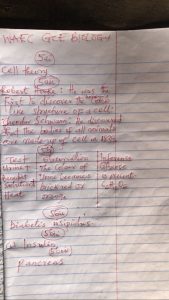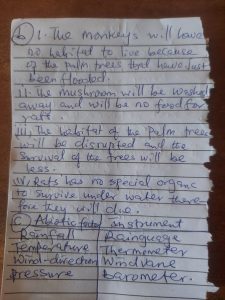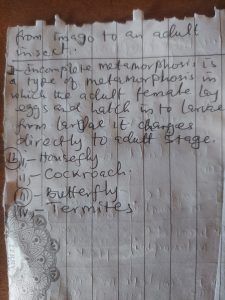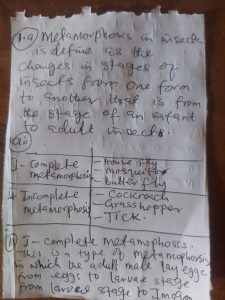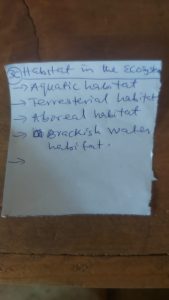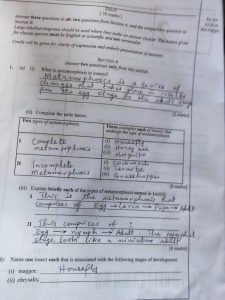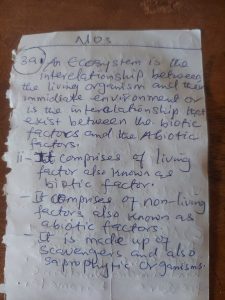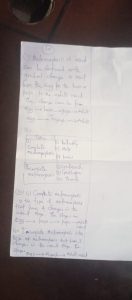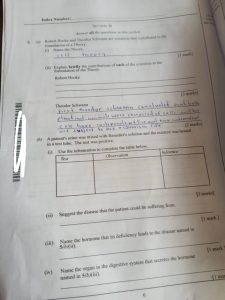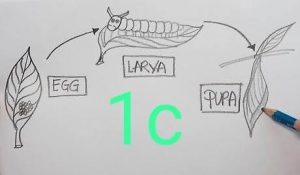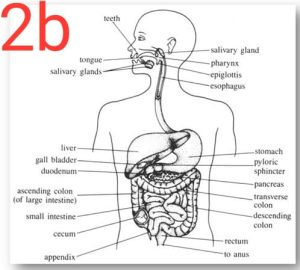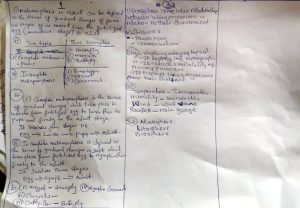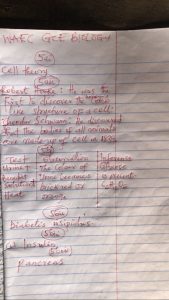Waec gce biology answers 2022
USE THIS WAEC GCE BIOLOGY
1-10: ABBADDBCDA
11-20: DCBDADCCAC
21-30: DDACDBABAD
31-40: DBADDBACCD
41-50: DCACBBDABD
2ai)
*Mouth*
The digestion process begins when you start chewing your food.
Your teeth break the food into smaller pieces, and your saliva moistens the food so that it’s easier for it to move through your esophagus and into your stomach. Your saliva also contains enzymes that begin breaking down the fat in your food.
2ai)
*Mouth*
The digestion process begins when you start chewing your food.
Your teeth break the food into smaller pieces, and your saliva moistens the food so that it’s easier for it to move through your esophagus and into your stomach. Your saliva also contains enzymes that begin breaking down the fat in your food.
*Deodenum*
Bile grabs onto the fats, and the emulsifiers increase their surface area, making them easier for digestive enzymes to act on. Following this, enzymes break apart fatty acids. Lipase from the pancreas further digests fats into monoglycerides and fatty acids
*WAEC GCE BIOLOGY ANSWERS*
(1a)
(i) Incomplete metamorphosis; This refers to a type of insect development in which gradual changes occur in the insect during the development from the egg to the adult.
(ii) Complete metamorphosis; This is the type of insect development that includes egg, larva, pupal, and adult stages, which differ greatly in morphology.
(1bi)
(i) Cockroaches
(ii) Praying mantises
(iii) Termites
(1bii)
(i) Butterflies
(ii) Ants
(iii) fleas
(1c)
Diagram
(1d)
TABULATE
=BUTTERFLY=
(i) The life cycle of butterfly is of four stages: egg, pupa, larvae and adult
(ii) It undergoes complete metamorphosis
=COCKROACH=
(i) The life cycle of cockroach consist of three stages: egg, nymph and adult
(ii) It undergoes incomplete metamorphosis
(1e)
(i) Chrysalis; Butterfly
(ii) Ootheca; Cockroach
(iii) Maggot; Housefly
*WAEC GCE BIOLOGY ANSWERS*
(5ai)
Cell theory
(5aii)
Robert Hooke: He was the first to discover the honeycomb like structure of a cell.
Theodor Schwann: He discovered that the bodies of all animals are made up of cell in 1839
(5bi)
In a tabular form:
TEST:
Urine + Benedict solution + heat.
OBSERVATION:
The colour of urine becomes brick red or orange.
INFERENCE:
Glucose is present.
C6H12O6
(5bii)
Diabetes Insipidus
(5biii)
Insulin
(5biv)
Pancreas
(5ci)
(Pick any TWO)
(i) High birthrate
(ii) Availability of food.
(iii) Availability of basic infrastructural amenities.
(5cii)
(Pick any TWO)
(i) Natural disasters.
(ii) Increase in high rate of diseases.
(iii) Insufficient food supply.
(5di)
Primary succession is a community of pre-existing organisms that have been in existence follow by the immediate replacement of those organism in a particular habitat.
(5dii)
(i) Community of monkeys/baboons.
(ii) Community of tilapia fish and cat fish.
(iii) Population of grasshoppers and locust
(5e)
(i) Oesophagus: It allowed the paristaltic movement or passage of food from the mouth to the crop.
(ii) Stomach: It stores food temporarily for digestion.
(iii) Intestine: It is an area where digestion is complete and digested food are absorbed.
(iv) Anus: It is a part were undigested food eh faeces are removed.
(v) Gizzard: It is the part where food particles, sand and grits are been grinded for proper digestion.
(5f)
(i) skin
(ii) kidney
(iii) liver
*WAEC GCE BIOLOGY THEORY ANSWERS*
(1ai)
Metamorphosis is a series of gradual changes in forms and structures of an insect from egg stage to adult stage or imago.
(1aii)
In a tabular form:
Two types of Metamorphosis:
I. Complete netamorphosis
II. Incomplete metamorphosis
Three examples each of insects that undergo the type of Metamorphosis:
Complete metamorphosis:
(i) House fly
(ii) Mosquito
(iii) Butterfly
Incomplete metamorphosis:
(i) Cockroach
(ii) Grasshopper
(iii) Termite
(1aiii )
I. Complete metamorphosis is a form of metamorphosis that involves four different stages that is from egg – larva – pupa – adult.
II. Incomplete metamorphosis is a form of metamorphosis that involves two or three different stages, that is from egg – nymph – adult.
(1b)
(i) Maggot – Housefly.
(ii) Chrysalis- Aphid
(iii) Caterpillar – Butterfly
(iv) Nymph – Grasshopper
*=======================*
*=======================*
(2ai)
As the meal passes through the mouth. The meal remain unaffected because there is no chemical substances to act on them.
(2aii)
As it passes through the duodenum, the meal is been converted from fat to fatty acid.
(2b)
DIAGRAM [https://i.imgur.com/RwLILnl.jpg]
(2ci)
It is the wavelike movement of bolus (food substance) through the oesophagus down to the stomach.
(2cii)
(i) Tongue
(ii) Stomach
(iii) Small intestine
*=======================*
*=======================*
(5ai)
Cell theory
(5aii)
Robert Hooke: He was the first to discover the honeycomb like structure of a cell.
Theodor Schwann: He discovered that the bodies of all animals are made up of cell in 1839
(5bi)
In a tabular form:
TEST:
Urine + Benedict solution + heat.
OBSERVATION:
The colour of urine becomes brick red or orange.
INFERENCE:
Glucose is present.
C6H12O6
(5bii)
Diabetes Insipidus
(5biii)
Insulin
(5biv)
Pancreas
(5ci)
(Pick any TWO)
(i) High birthrate
(ii) Availability of food.
(iii) Availability of basic infrastructural amenities.
(5cii)
(Pick any TWO)
(i) Natural disasters.
(ii) Increase in high rate of diseases.
(iii) Insufficient food supply.
(5di)
Primary succession is a community of pre-existing organisms that have been in existence follow by the immediate replacement of those organism in a particular habitat.
(5dii)
(i) Community of monkeys/baboons.
(ii) Community of tilapia fish and cat fish.
(iii) Population of grasshoppers and locust
_Typing more……._
